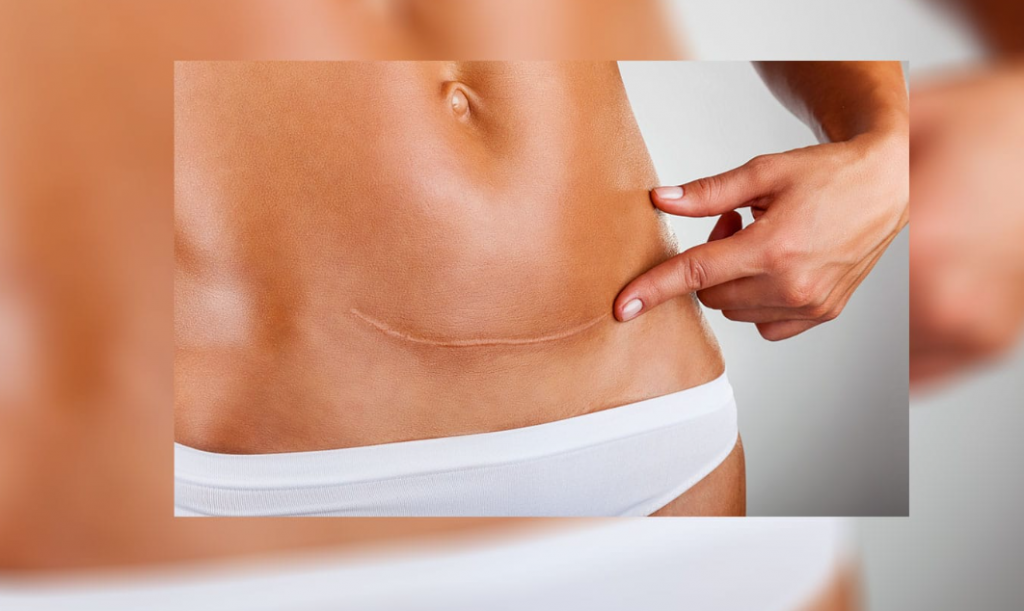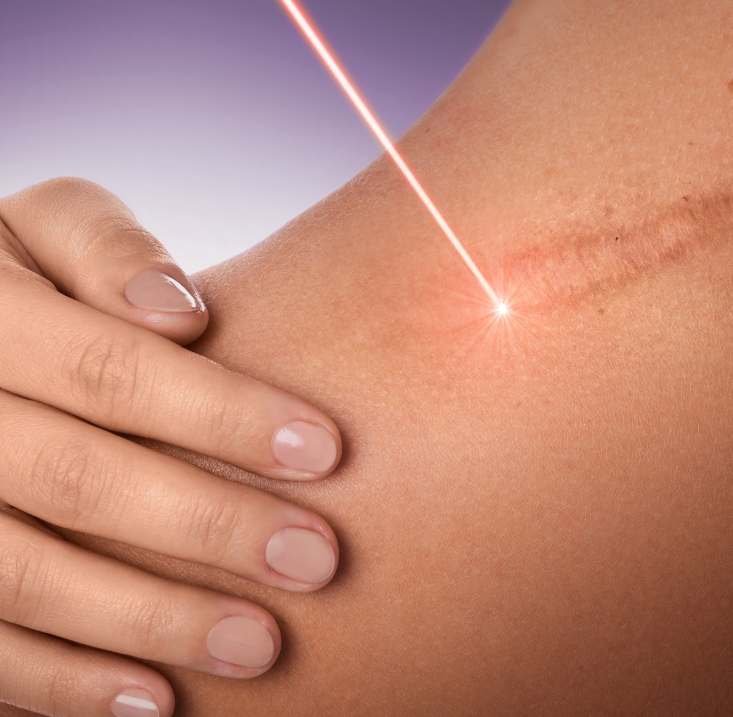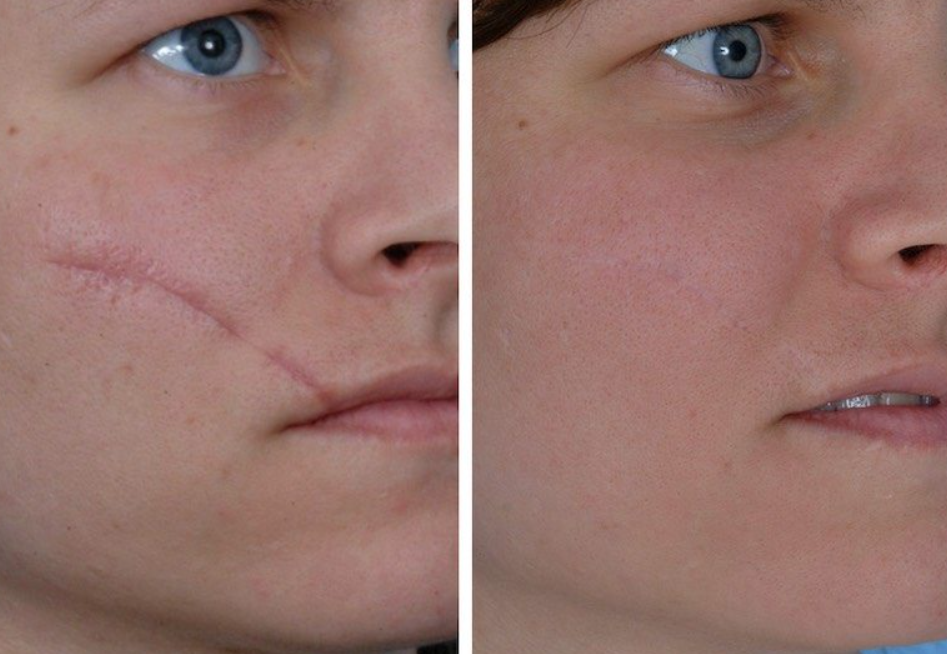This article explores the effectiveness of scar removal treatments. If you’ve ever wondered whether these treatments really work, you’ve come to the right place. We will dive into various subheadings related to scar removal, providing you with all the information you need to make an informed decision.
Scars can be a constant reminder of past injuries or surgeries, and many people desire to remove them. But do these scar removal treatments actually deliver on their promises? Let’s find out!
Throughout this article, we will discuss different types of scar removal treatments, including topical creams, laser treatments, surgical procedures, and natural remedies. Each subheading will give you insights into how these treatments work, their potential effectiveness, and their pros and cons.
Whether you’re considering topical scar removal creams, laser treatments, or natural remedies, we will provide you with the information you need to understand how these treatments work and what results you can expect. We will explore the science behind their mechanisms, compare different brands and methods, and even delve into the world of surgical scar removal options.
Additionally, we will address common questions and concerns through a Frequently Asked Questions (FAQs) section. Wondering if scar removal creams are safe? Curious about how long it takes for scars to fade? We have concise explanations and expert advice to answer all your burning questions.
Finally, we will wrap up the article with a summary conclusion that highlights the key points discussed in each subheading. Remember, the effectiveness of scar removal treatments may vary depending on individual circumstances. It’s essential to consult with a healthcare professional to determine the best treatment plan for your specific situation.
So, sit back, relax, and let’s explore the world of scar removal treatments together!
Understanding Scars and Scar Removal

Scars can be a constant reminder of past injuries or surgical procedures, affecting both our physical appearance and self-confidence. Understanding the nature of scars and the desire to remove them is crucial in finding the right treatment path.
Scars are formed when the skin heals itself after an injury or surgery, resulting in the formation of collagen fibers. The appearance of scars can vary, ranging from subtle discoloration to raised, thickened tissues.
Fortunately, there are several scar removal treatments available that aim to minimize the visibility of scars and improve overall skin appearance. These treatments include topical creams, laser therapies, surgical procedures, and natural remedies.
Exploring these various scar removal options allows individuals to make informed decisions about their preferred treatment method and understand the potential effectiveness of each.
Types of Scar Removal Treatments
When it comes to scar removal in Arizona, there are several options to consider. Each treatment method has its own pros and cons, and it’s important to understand them before making a decision.
1. Topical Creams: One of the most common scar removal treatments is the use of topical creams. These creams provide a non-invasive approach and can be easily applied to the affected area. However, the effectiveness may vary depending on the severity of the scar and individual skin type. It’s essential to choose a reputable brand and follow the recommended application methods.
2. Laser Treatments: Laser treatments have gained popularity for scar removal. They work by targeting the scar tissue with concentrated light beams, stimulating collagen production and promoting skin regeneration. Laser treatments can be effective for various types of scars, but multiple sessions may be required for optimal results.
3. Surgical Procedures: In some cases, surgical intervention may be necessary for scar removal. Procedures such as excision, skin grafting, and dermabrasion can be effective for more severe scars. However, surgery carries risks, and the recovery process can be lengthy. It’s important to consult with a qualified surgeon to understand the potential benefits and drawbacks.
4. Natural Remedies: Some individuals prefer natural remedies for scar removal. Ingredients like aloe vera, honey, and essential oils are believed to have healing properties. However, the effectiveness of these remedies may vary, and they may not be suitable for all types of scars. It’s advisable to consult with a healthcare professional before solely relying on natural remedies.
By exploring the different types of scar removal treatments and understanding their pros and cons, you can make an informed decision about which method may be best for your specific situation.
Topical Scar Removal Creams
Topical scar removal creams are an increasingly popular option for reducing the visibility of scars. These creams work by targeting the affected areas with a blend of active ingredients that are designed to promote skin healing and regeneration.
One of the key advantages of topical creams is their ease of application. Simply apply the cream directly to the scarred area and gently massage it into the skin. This allows the active ingredients to penetrate the skin and target the scar tissue directly.
When choosing a topical scar removal cream, it’s important to consider the ingredients. Look for creams that contain ingredients known to have beneficial effects on scar healing, such as vitamin E, silicone, and hyaluronic acid.
Each brand of scar removal cream may have slightly different ingredients and formulations, so it’s important to compare them and read reviews to determine their effectiveness. Some creams may also have additional features, such as SPF protection or moisturizing properties.
Expected outcomes vary depending on the severity and type of scar, as well as individual factors like skin type and overall health. While scar removal creams can help reduce the appearance of scars over time, it’s important to manage expectations and remember that complete elimination of scars may not be possible.
Consulting with a healthcare professional or dermatologist is recommended before starting any scar removal treatment, including topical creams. They can provide personalized advice and recommendations based on your specific situation.
Laser Scar Removal Treatments

When it comes to scar removal, laser treatments have emerged as one of the most effective solutions. But how do they work their magic? Let’s uncover the science behind laser scar removal.
Laser therapy targets scar tissue directly, penetrating the skin with concentrated beams of light. This high-intensity light is absorbed by the scar tissue, causing it to break down and gradually fade away over time.
Not all lasers are created equal. There are different types of lasers used in scar removal treatments, each with its own unique characteristics and effectiveness. For example, ablative lasers are known for their ability to vaporize scar tissue, while non-ablative lasers stimulate collagen production and promote skin regeneration.
Success rates of laser scar removal treatments can vary depending on factors such as the type and severity of the scar, as well as the patient’s individual response to the treatment. It’s important to consult with a healthcare professional to determine the most suitable laser treatment for your specific scar.
Surgical Scar Removal Procedures
When it comes to scar removal, surgical procedures offer a range of options to consider. Delve into the world of surgical scar removal and discover the various procedures that are available to you.
1. Excision:
Excision involves the removal of the scar tissue, often followed by sutures or skin closure methods. This procedure is commonly used for larger, more prominent scars and may require a healing time of several weeks.
2. Skin grafting:
Skin grafting involves taking a piece of healthy skin from another part of your body and attaching it to the scarred area. This procedure helps replace damaged skin with healthy tissue, allowing for better healing and improved appearance.
3. Dermabrasion:
Dermabrasion is a technique that uses a high-speed rotating brush to remove the top layers of the skin, including the scar tissue. This procedure stimulates the growth of new and smoother skin, reducing the visibility of scars.
Before considering surgical interventions, it is essential to weigh the risks and benefits associated with each procedure. Consulting with a healthcare professional is crucial to understanding which surgical option is suitable for your particular case. Additionally, understanding the recovery process and any potential complications is important for making an informed decision.
Natural Remedies for Scar Removal
When it comes to scar removal, natural remedies are often sought after for their potential effectiveness and affordability. Many people turn to natural ingredients such as aloe vera, honey, and essential oils in the hope of reducing the appearance of scars.
Aloe vera is a popular choice due to its soothing and healing properties. It is believed to help expedite the healing process, moisturize the skin, and reduce inflammation, making it beneficial for scar reduction. Honey, on the other hand, is known for its antibacterial properties and potential to promote tissue regeneration. This natural ingredient may aid in reducing the visibility of scars over time.
Essential oils are also commonly used in scar removal treatments. Certain oils like lavender, tea tree, and rosehip are believed to have scar-reducing properties. They can be applied topically after dilution and may help improve the appearance of scars through their rejuvenating and regenerative effects.
While natural remedies can be appealing, it is important to understand their limitations and potential risks. The effectiveness of these remedies may vary from person to person, and results can take time to become noticeable. It’s also essential to remember that natural remedies may not provide the same level of effectiveness as medical treatments.
Consulting with a healthcare professional is recommended before solely relying on natural remedies for scar removal. They can provide personalized advice and guidance based on your specific scar type and medical history. In some cases, a combination of natural remedies and medical treatments may yield the best results for scar reduction.
Frequently Asked Questions (FAQs)
Get answers to common questions about scar removal treatments, such as:
- Are scar removal creams safe?
- How long does it take for scars to fade?
Here are concise explanations and expert advice to address readers’ concerns.Are scar removal creams safe?
Many people turn to scar removal creams as a convenient and non-invasive solution to reduce the visibility of scars. But are these creams really safe to use? Let’s explore the safety aspects of scar removal creams.
First and foremost, it’s important to note that scar removal creams are generally considered to be safe when used as directed. Most scar removal creams undergo rigorous testing to ensure their safety and efficacy. However, it’s always a good idea to check for any potential allergens or irritants in the ingredients list before using a product.
It’s also worth mentioning that while scar removal creams are safe for most people, individual reactions may vary. Some individuals may experience skin irritation, redness, or itching when using certain creams. If you have sensitive skin or a history of allergic reactions, it’s advisable to do a patch test before applying the cream to a larger area.
Additionally, scar removal creams should not be used on open wounds or broken skin. They are designed to be used on fully healed scars. If you have any concerns or doubts, it’s always best to consult with a dermatologist or healthcare professional before using any scar removal cream.
In conclusion, scar removal creams can be safe and effective for reducing the visibility of scars. However, it’s important to read and follow the instructions carefully, perform a patch test if necessary, and seek professional advice if you have any concerns or specific skin conditions.and
This article explores the effectiveness of scar removal treatments. Scars can be a source of self-consciousness and may affect one’s confidence. Many people desire to remove or diminish the appearance of scars, whether they are from acne, surgery, or injuries. There are several scar removal treatments available, each with its own potential effectiveness.
Topical creams are a common scar removal treatment. These creams are applied directly to the scar and work to reduce its visibility. They often contain ingredients like silicone, vitamin E, and hyaluronic acid. However, the effectiveness of topical creams can vary, and results may take time to become noticeable.
Laser treatments are another option for scar removal. Laser therapy targets the scar tissue, promoting skin regeneration and reducing the appearance of scars. Different types of lasers, such as CO2 lasers and fractional lasers, can be used depending on the type and severity of the scar. Laser treatments have shown promising results, but multiple sessions may be required for optimal outcomes.
Surgical procedures are considered for more severe scars that do not respond well to other treatments. Options such as excision, skin grafting, and dermabrasion may be recommended by a healthcare professional. While surgical interventions can provide significant improvement, they come with risks, including infection and scarring at the surgical site.
For those seeking a more natural approach, there are various home remedies and natural remedies for scar removal. Ingredients such as aloe vera, honey, and essential oils are believed to have scar-reducing properties. However, it is important to note that the effectiveness of these remedies may vary, and they should be used with caution.
When considering scar removal treatments, it is crucial to consult with a healthcare professional to determine the best course of action. They can assess the type of scar, provide expert guidance, and manage expectations. While scar removal treatments can help improve the appearance of scars, complete removal may not always be possible. It is important to have realistic expectations and remember that each person’s response to treatment may vary.How long does it take for scars to fade?
How long does it take for scars to fade?
The duration for scars to fade can vary depending on several factors, including the type and severity of the scar, individual healing abilities, and the chosen scar removal treatment. While some scars may naturally fade and become less noticeable over time, others may require specialized treatments to improve their appearance.
In general, smaller and less severe scars may start to fade within a few months to a year. However, it’s important to note that complete scar resolution may take longer, especially for deeper scars or those in areas with limited blood circulation.
Undergoing scar removal treatments, such as topical creams, laser therapy, or surgical interventions, can potentially expedite the fading process. These treatments aim to stimulate collagen production, promote cell turnover, and encourage the growth of healthy new skin cells.
It’s essential to consult with a healthcare professional to determine the most suitable treatment approach for your specific scar type and individual circumstances. They can provide personalized recommendations and guidance on the expected timeline for scar fading based on your unique situation.Find concise explanations and expert advice to address readers’ concerns.
When it comes to scar removal treatments, it’s common for readers to have numerous concerns and questions. That’s why we’ve compiled concise explanations and expert advice to address all your concerns and provide you with the information you need to make informed decisions.
Our experts have studied and researched various scar removal methods extensively, analyzing their effectiveness, safety, and potential side effects. In this section, we have provided detailed answers to frequently asked questions, such as:
- Are scar removal creams safe?
- How long does it take for scars to fade?
By addressing these concerns, we aim to empower you with knowledge and help you navigate the world of scar removal treatments with confidence. Remember, it’s essential to consult with a healthcare professional before committing to any scar removal method to ensure it’s suitable for your specific situation.
Summary Conclusion
After exploring various subheadings related to scar removal treatments, it is important to wrap up with a summary conclusion. Throughout the article, we have discussed the nature of scars, different treatment options, and their potential effectiveness.
When considering scar removal, it is crucial to consult with a healthcare professional. They will be able to assess your specific situation and recommend the most suitable treatment method. It is also important to manage your expectations, as scar removal treatments may not completely eliminate scars but can help improve their appearance.
Whether you opt for topical creams, laser treatments, surgical procedures, or natural remedies, it is essential to understand the pros and cons of each approach. Make an informed decision based on your individual needs and desired outcomes.
In conclusion, scar removal treatments can be effective in reducing the visibility of scars, but it is important to approach them with realistic expectations and seek professional guidance.


